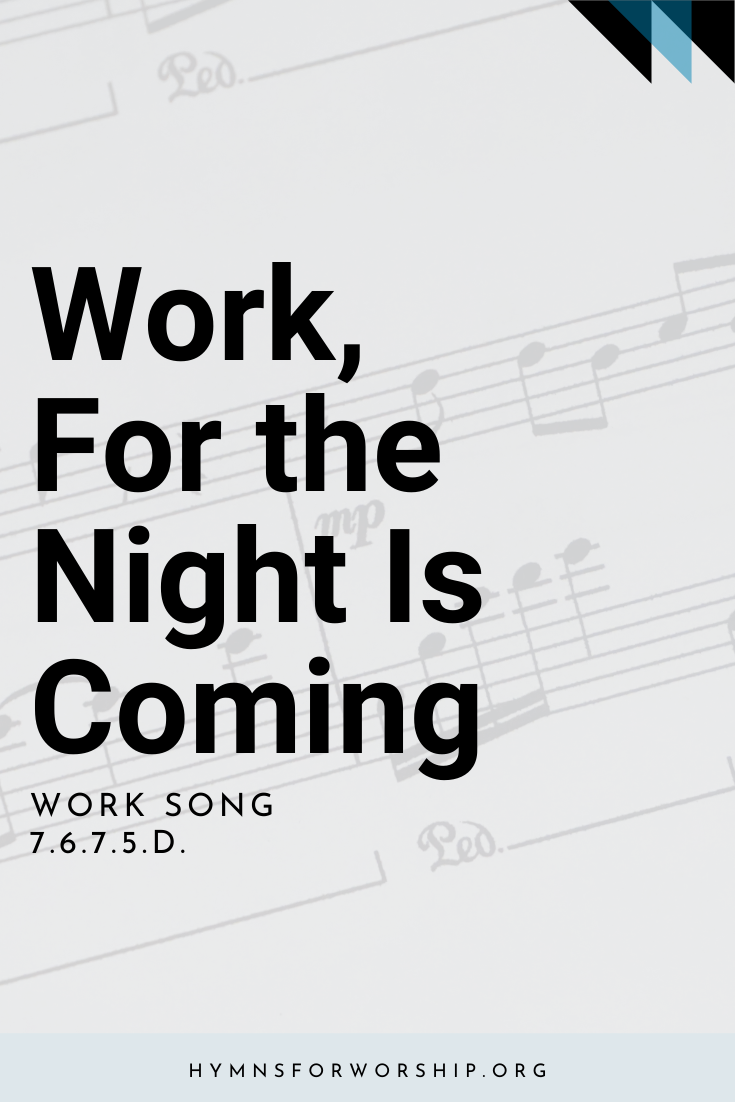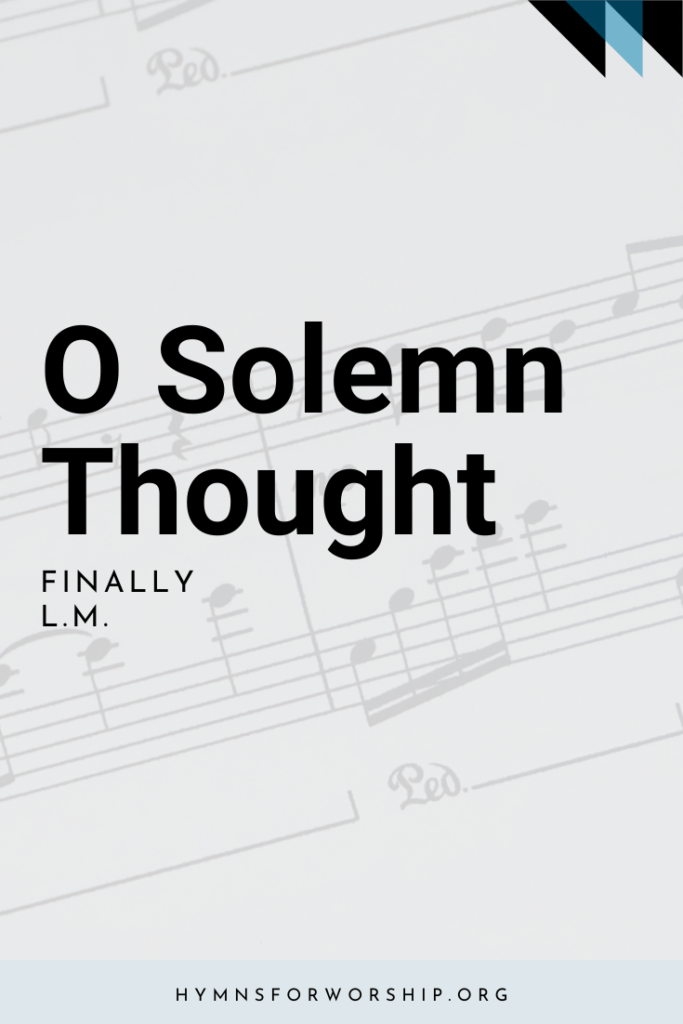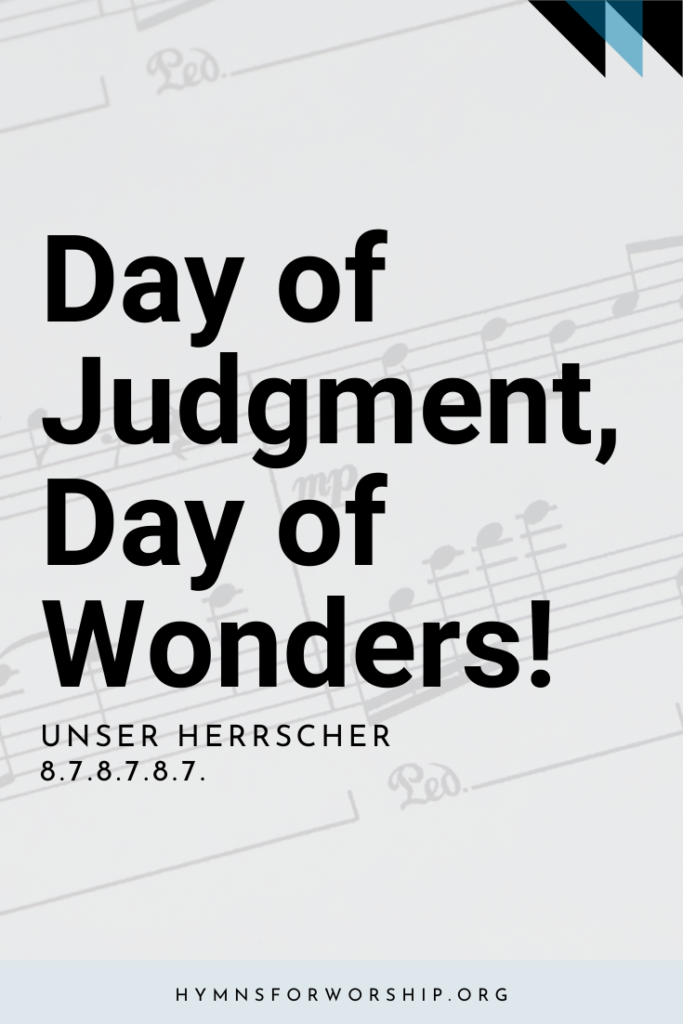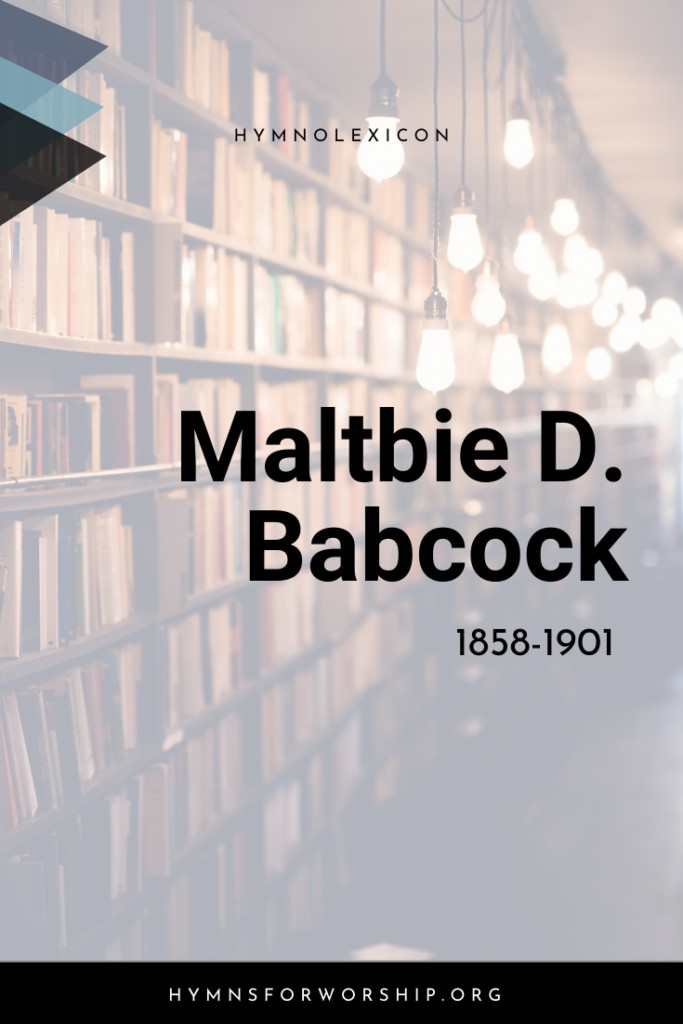CHRISTIAN CHURCH >> Mission of the church
SDAH 375
Work for the night is coming,
Work through the morning hours;
Work while the dew is sparkling;
Work ‘mid springing flow’rs.
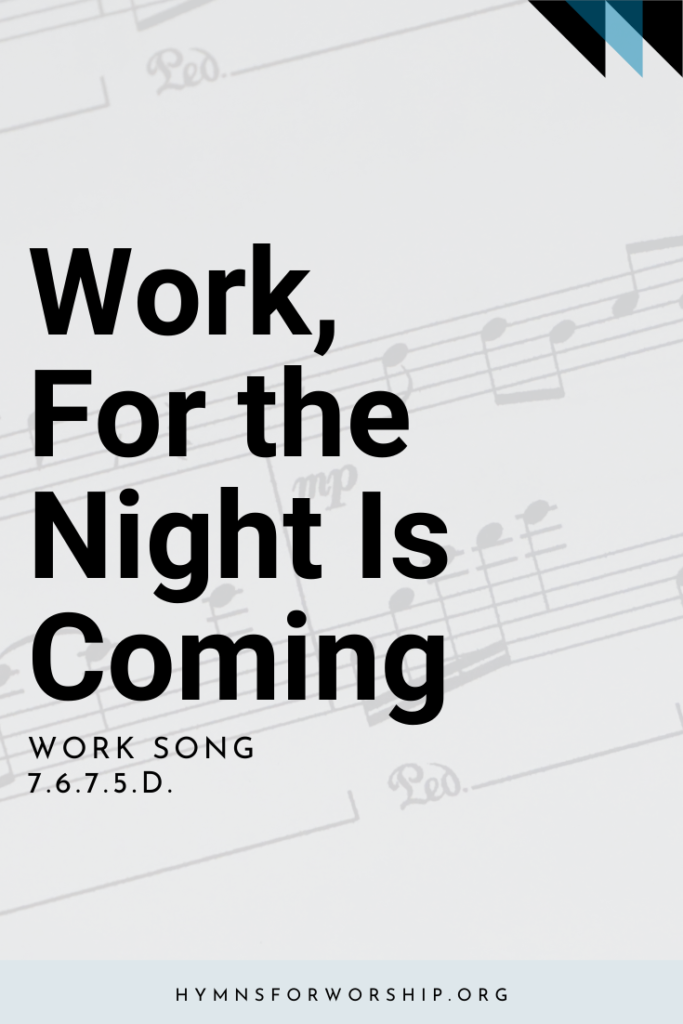

Text
1
Work for the night is coming,
Work through the morning hours;
Work while the dew is sparkling;
Work ‘mid springing flow’rs.
Work when the day grows brighter,
Work in the glowing sun;
Work for the night is coming,
When man’s work is done.
2
Work for the night is coming,
Work thro’ the sunny noon;
Fill brightest hours with labor,
Rest comes sure and soon.
Give every flying minute
Something to keep in store;
Work for the night is coming,
When man works no more.
3
Work for the night is coming,
Under the sunset skies;
While their bright tints are glowing,
Work for daylight flies.
Work till the last beam fadeth,
Fadeth to shine no more;
Work while the night is dark’ning,
When man’s work is o’er.

Hymn Info
Biblical Reference
(a) John 9:4
Author
Mrs. Anna L. Coghill (1836-1907) alt.
Year Published
1854
Copyright
Arrangement copyright 1984 by Melvin West
Hymn Tune
WORK SONG
Metrical Number
7.6.7.5.D.
Composer
Lowell Mason (1792-1872)
Arranged
Melvin West, 1984 (1930-)
Year Composed
1864
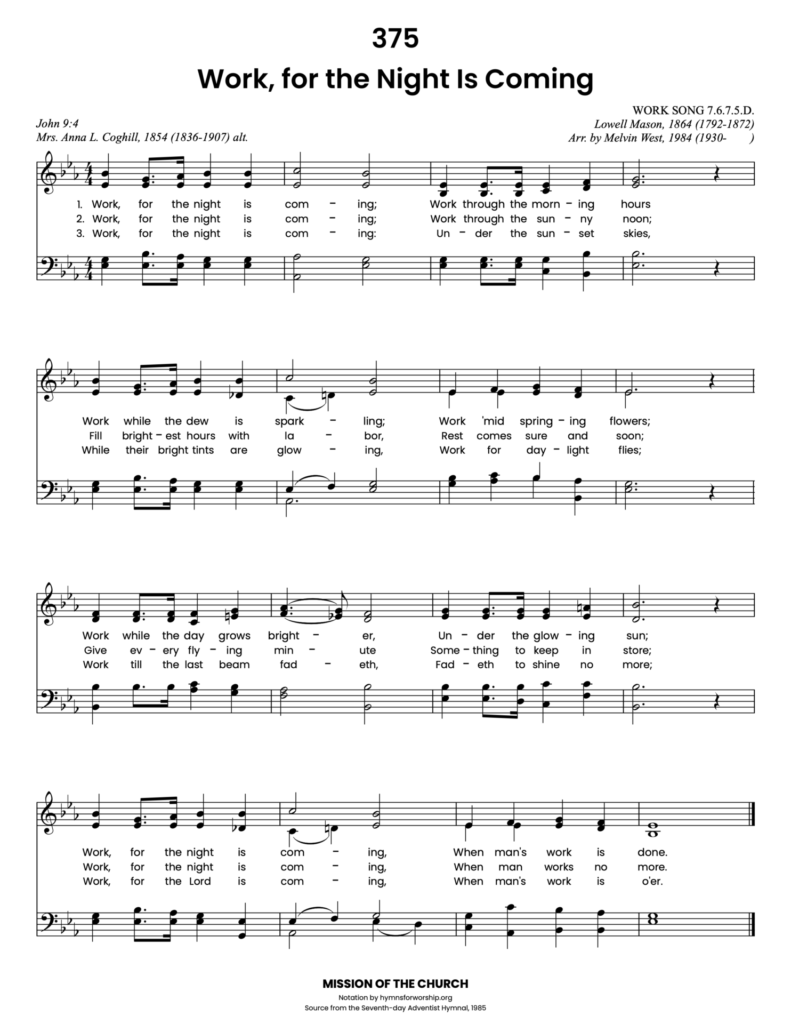
Get the hymn sheet in other keys here
Notes
Make each hymn more meaningful with these helpful tools: Short, ready-to-use hymn introductions for church bulletins, multiple ways to introduce a hymn based on your worship theme and in-depth history and insights to enrich your song service.
God has given us the opportunity to work not just for earthly riches but also to lay up treasure in heaven. May we not be so caught up in increasing earthly riches that we forget to seek those treasures that cannot rust or be taken from us. (Lesson 8, 1st Quarter 2023, Managing for the Master – Monday, “The Blessing of Work Ideally” 2/20/23)
While probation lasts, let us work. Christ would have died to save one soul. How can we rest when there are multitudes, multitudes in the valley of decision? Forever to be lost or saved? (Lesson 11, 1st Quarter 2023 – Tuesday, “Begin With Personal Needs”, 3/7/23)

